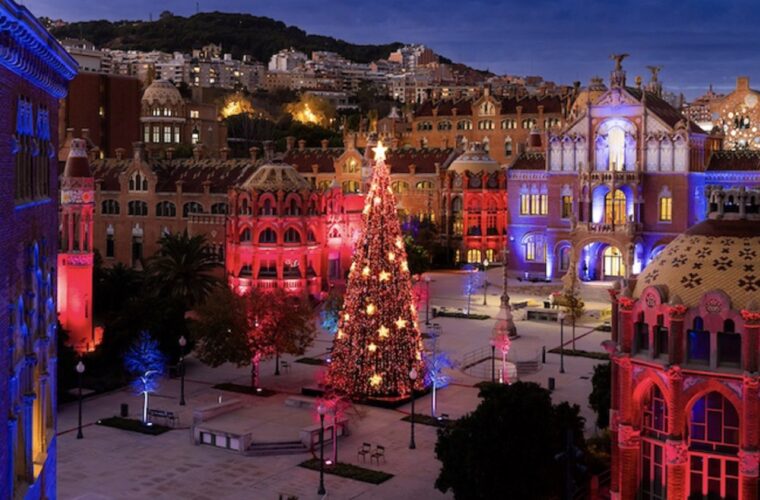Celebrating Christmas and New Year’s Eve is a time-honoured tradition, even for those who venture beyond Earth’s atmosphere. While most of us enjoy the festive season surrounded by family and friends, astronauts aboard space stations find creative ways to bring holiday cheer into their unique environment.
A tradition dating back to Apollo 8
The tradition of celebrating holidays in space began with NASA’s Apollo 8 mission in 1968. As the first crewed spacecraft to orbit the Moon, Apollo 8 marked Christmas by broadcasting a reading from the Book of Genesis to people on Earth. This historic gesture set the tone for future celebrations in space, where astronauts continue to find meaningful ways to connect with home and share goodwill.
Decorations and festive meals on the ISS
Today, astronauts aboard the International Space Station (ISS) maintain this tradition with decorations and festive meals. The crew often adorns their living quarters with lights, small Christmas trees, and ornaments sent from Earth. The floating Christmas tree has become a cherished symbol of the holidays in orbit, showing how creativity adapts to microgravity. Meals are another integral part of the festivities. While space food may not rival Earth’s gourmet feasts, astronauts enjoy specially packaged versions of holiday favourites. NASA ensures that traditional dishes, such as turkey and cranberry sauce, are included in resupply missions, allowing astronauts to indulge in the season’s spirit. Sharing meals and exchanging thoughtful gifts sent by family and colleagues enhance the sense of camaraderie among the crew.
Messages to Earth: A connection that transcends distance
One of the most heart-warming aspects of celebrating holidays in space is the tradition of sending messages to Earth. Astronauts take time to record videos or write letters expressing their wishes for peace and unity. These messages, broadcasted globally, remind us of the universal nature of the holiday spirit. In recent years, technology has allowed astronauts to connect with loved ones more directly. Video calls and live messages have become a staple of holiday celebrations, offering a sense of closeness despite the vast distance.
Multinational crews and cultural diversity
The ISS hosts a multinational crew with astronauts from countries across the globe. This diversity enriches holiday celebrations as different traditions and customs are shared. For instance, Russian cosmonauts often observe Orthodox Christmas on January 7, bringing their unique flavour to the festivities. Including multiple cultural elements fosters unity and mutual respect among the crew, embodying the collaborative spirit of space exploration.









A New Year’s Eve to remember
Celebrating New Year’s Eve in space comes with a unique twist. As the ISS orbits Earth at a speed of approximately 28,000 kilometres per hour, astronauts experience multiple sunrises and sunsets in a single day. This means they can technically celebrate the New Year numerous times as they pass over different time zones. Astronauts often choose a specific time zone, usually that of mission control, to mark the occasion. The festivities may include a countdown, toasts with non-alcoholic beverages, and the joy of watching Earth’s light shows from space.
The universal spirit of the holidays
Holidays in space are more than a break from routine—they are a testament to humanity’s ability to adapt and celebrate even in the most challenging environments. For astronauts, these moments serve as a reminder of home and the bonds that unite us all. Whether it’s a floating Christmas tree, a shared meal, or a heartfelt message to Earth, the festive spirit remains alive and well in orbit. It’s a beautiful example of how traditions evolve and flourish, even beyond the bounds of our planet.
By celebrating Christmas and New Year’s Eve, astronauts maintain a sense of normalcy and inspire us on Earth to cherish the connections and traditions that make this season special.



